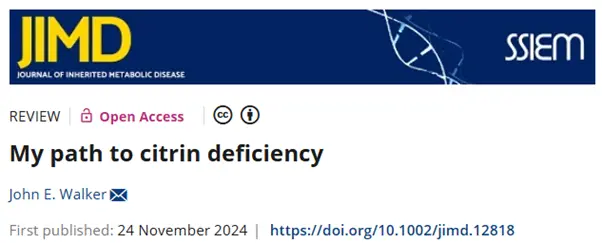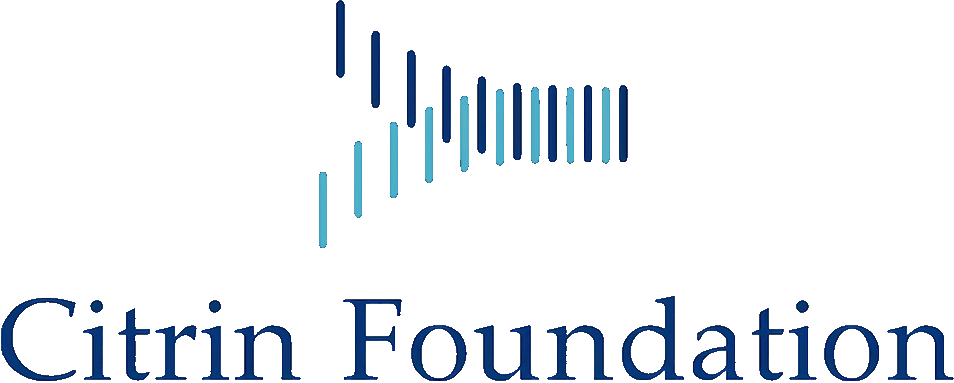We are pleased to announce a review publication by Professor Sir John E. Walker (University of Cambridge) titled “My Path to Citrin Deficiency”. This review is featured in the Journal of Inherited Metabolic Disease (JIMD, Vol. 47, No. 6) as part of a special themed issues dedicated to ureagenesis defects and allied disorders, with a strong focus on citrin deficiency. The review is available for viewing here: https://doi.org/10.1002/jimd.12818

In his review, Professor Walker recounts his groundbreaking journey, from studying ATP synthase and the mechanisms of ATP production—a discovery that earned him the Nobel Prize in Chemistry in 1997—to identifying the citrin protein and elucidating its functions. His pioneering work laid the foundation for all subsequent research into citrin deficiency. Key highlights include:
- Discovery of SLC25 Mitochondrial Carrier Structures: Professor Walker and colleagues identified the hallmark six-transmembrane alpha-helix structure and the three-fold repeated signature motif in the bovine ADP-ATP mitochondrial carrier. This finding led to the recognition of the SLC25 protein family, which includes citrin.
- Development of the EPRA Method: He and his collaborators developed the EPRA method (Expression, Purification, Reconstitution, and Assay), a transformative technique for studying mitochondrial carrier proteins. Using EPRA, it was demonstrated that citrin facilitates the exchange of mitochondrial aspartate for cytosolic glutamate and a proton, forming the biochemical basis for understanding citrin deficiency.
- Insights into Citrin Deficiency: Building on these milestones, Professor Walker provides a detailed overview of five decades of research into citrin deficiency, offering invaluable insights into its pathogenesis, pathophysiology, and impact.
Other notable contributions from our close collaborators featured in this special issue, previously announced by the Foundation:
- Citrin Deficiency—The East-side Story (Häberle 2024)
- The Therapeutic Landscape of Citrin Deficiency (Vuković et al. 2024)
- Clinical Landscape of Citrin Deficiency: A Global Perspective on a Multifaceted Condition (Kido et al. 2024)
- Improved Sensitivity and Specificity for Citrin Deficiency Using Selected Amino Acids and Acylcarnitines in Newborn Screening (Kido et al. 2023)
Together, these articles mark a significant milestone in advancing global awareness and scientific understanding of citrin deficiency.
The Foundation continues to fund research projects to better understand citrin deficiency and ultimately find a cure for this condition. We have thus far earmarked US$30 million for research on citrin deficiency and are offering generous research grants to study the condition. You may find out more about our Funding Opportunities here: https://citrinfoundation.org/research/funding-opportunities/.
We value any feedback or ideas you might have, so please do not hesitate to contact us at info@citrinfoundation.org

